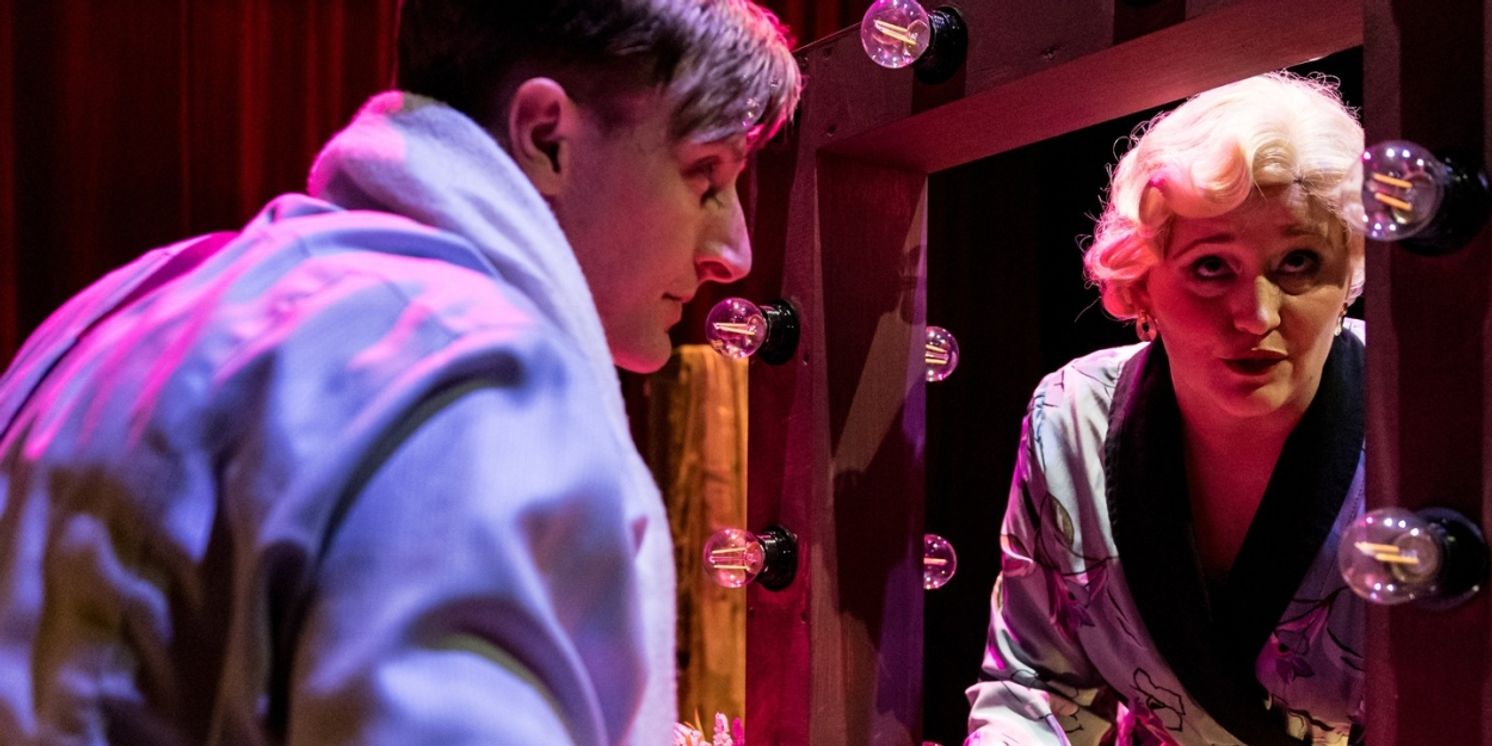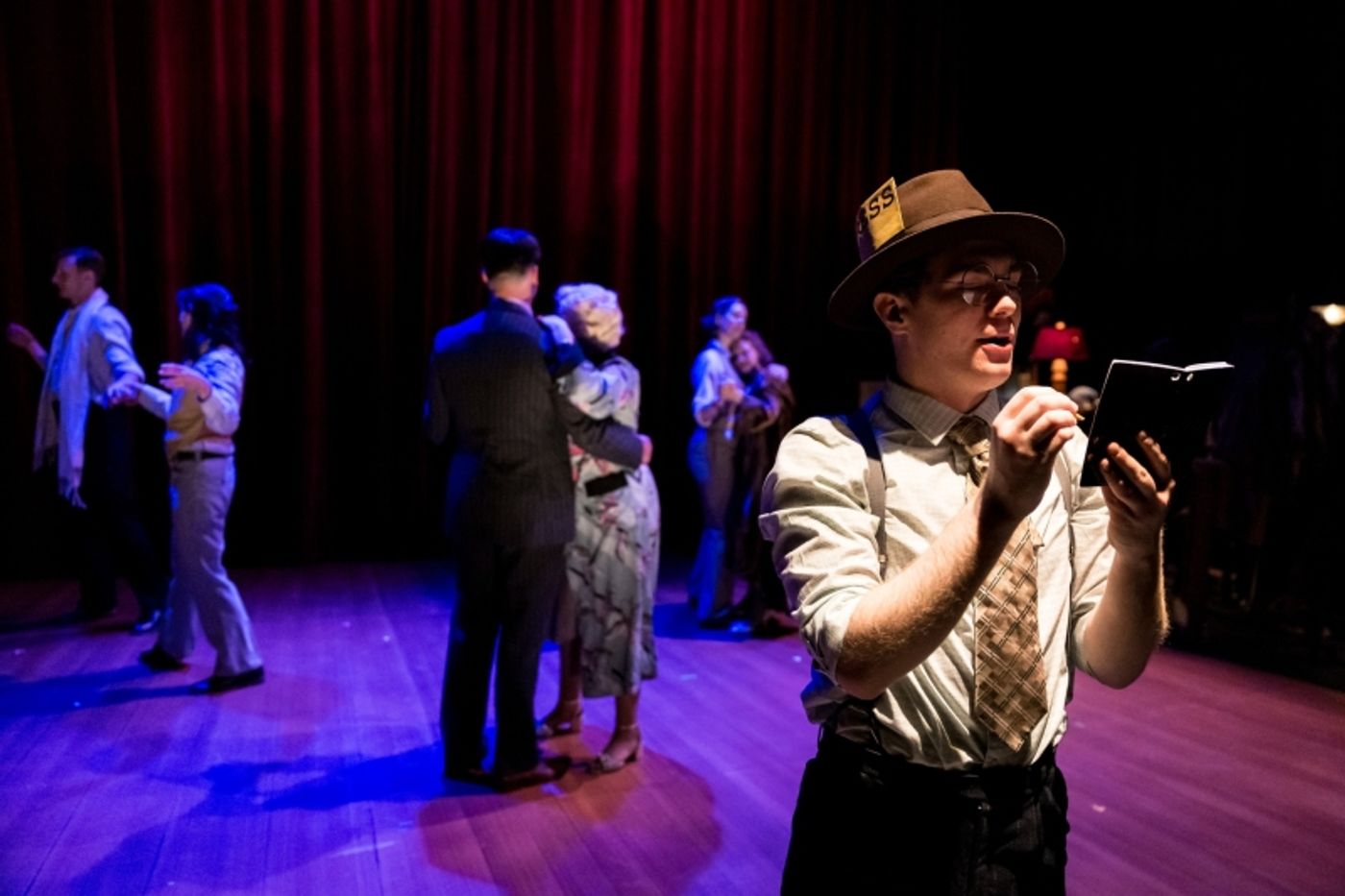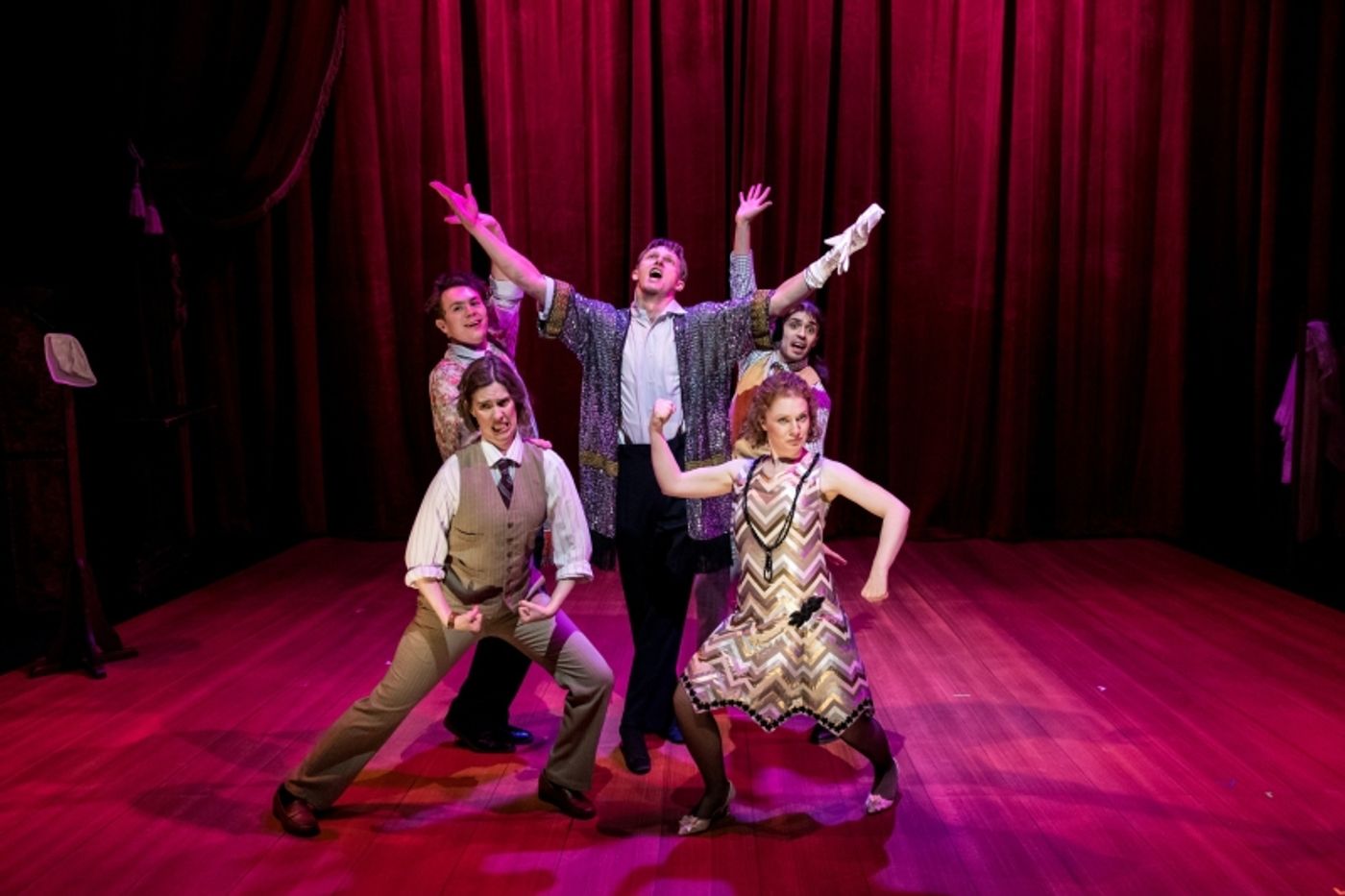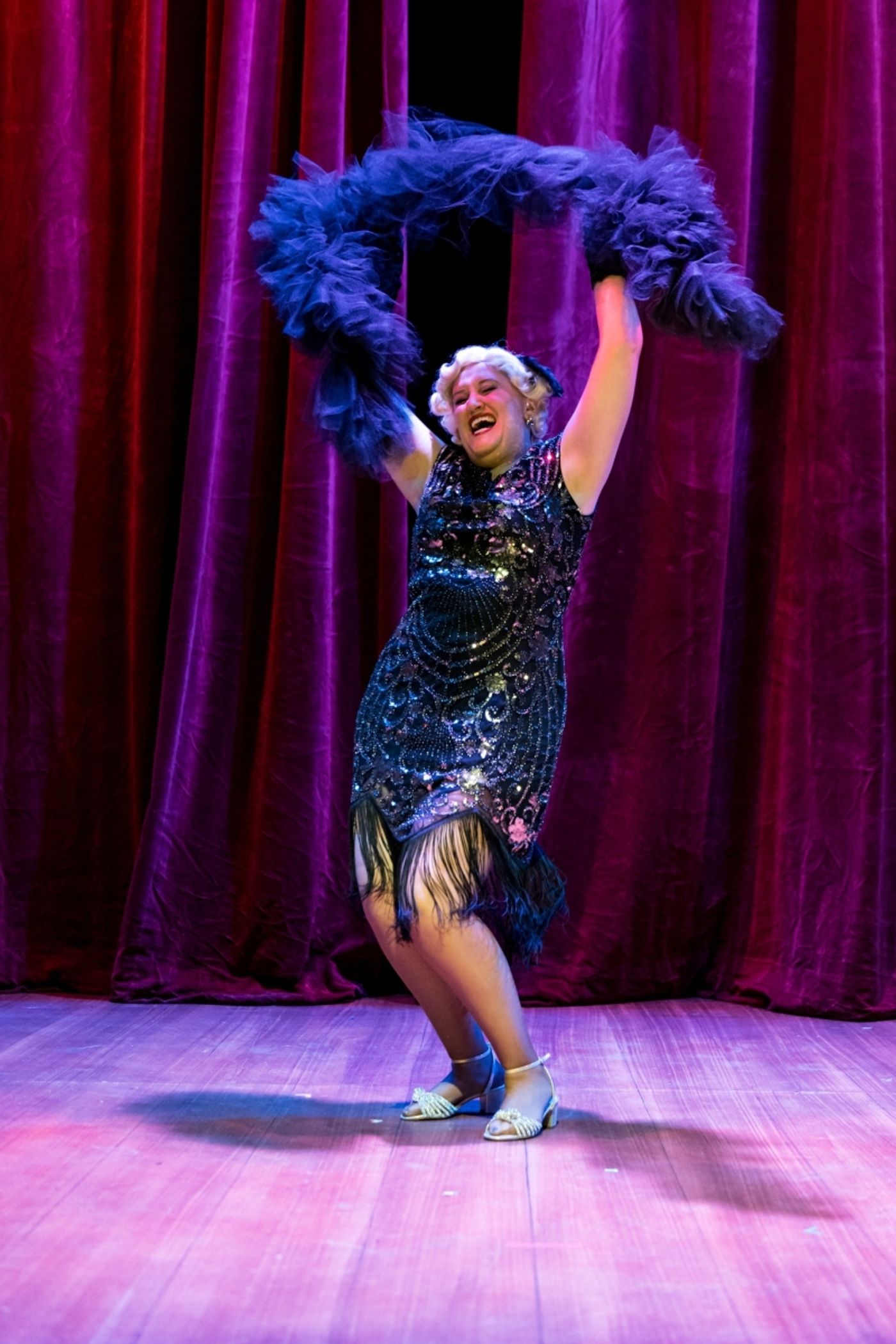Review: MAE WEST AND THE TRIAL OF SEX at Crane Theater
This production runs now through June 22, 2025

At the Crane Theater, Walking Shadow Theatre Company isn’t just reviving history — it’s exhuming it, dusting it off, and tossing it unapologetically under the spotlight. Mae West and the Trial of Sex, a new play written by Artistic Director John Heimbuch and directed by Allison Vincent, dives headlong into the scandal, subversion, and censorship of 1920s Broadway — and finds the modern resonance humming just beneath the fringe.
Front and center is Emily A. Grodzik’s dazzling turn as Mae West. She doesn’t play West as parody or camp — though the script gives her plenty of juicy one-liners — but grounds the bawdy icon in wit, guts, and a sharp defiance that never reads as dated. From the moment Grodzik saunters into the courtroom or writers' room or nightclub, she's in control — and she makes sure we know it.

The play orbits around the infamous 1927 police raid on West’s play Sex and the government crackdown that followed when she began work on The Drag, a then-radical drama about queer life in Greenwich Village. Heimbuch builds his narrative from primary sources — trial transcripts, newspapers, West’s own words — but what could’ve felt like a museum piece instead pulses with theatrical life. The result is a play that feels as contemporary as it is historical, holding a mirror to decades of silenced queer voices.
Vincent’s direction brings shape and swagger to the story, gliding us through courtrooms, backstages, bedrooms, and police precincts without losing momentum. The ensemble (Jack Bechard, Neal Beckman, Kelsey Cramer, Kayla Dvorak Feld, Samuel Osborne-Huerta, and Joe Swanson) swaps characters with ease and precision, often playing the men trying to stifle West’s work with a grotesque sort of swagger that underscores the farce of morality policing.
The production design is crisp and elegant, favoring suggestion over spectacle. Sarah Bahr’s minimal yet evocative set lets Mae remain the focus, while Mandi Johnson’s costumes flirt with period authenticity and theatrical flourish. Tony Stoeri’s lighting and Thomas Speltz’s sound work in quiet concert to underscore key emotional beats without ever drawing attention away from the actors.

But it’s in the drag ball scenes — choreographed with joyful flair by Jon Michael Still, with guidance from drag consultant Domino Rosa — where the show struts into full-on celebration. These moments feel both transgressive and triumphant, a reclaiming of what was once shut out of the American stage. They’re not just fabulous, they’re political — and that’s the point.
If there’s a critique to be made, it’s that the script occasionally leans into exposition-heavy passages, especially when unpacking the legal and cultural stakes. But Heimbuch earns the indulgence. When the theater has spent so long erasing queer stories, sometimes you have to say the quiet parts out loud.

More than a bio-play or courtroom drama, Mae West and the Trial of Sex is a reclamation — a rallying cry in corset and heels. It reminds us that queer history isn’t just something to be studied — it’s something to be staged, shouted, danced, and, most importantly, remembered.
For more ticket and show information, please click the ticket link button below.
All photos are credit to Dan Norman Photography
Reader Reviews

Videos

